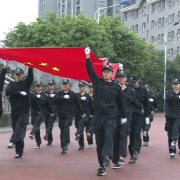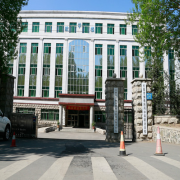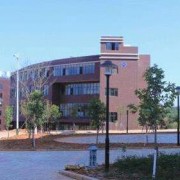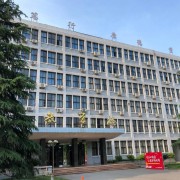12月19日信息与人工智能学院智慧耕“云”学术沙龙(第10期)暨国家基金辅导
来源:安徽农业大学 时间:2025-03-11 16:12:24
报告时间:12月19日下午15:40-18:00
报告地点:信智楼204
主办单位:科技处、信息与人工智能学院
报告主题:Using VAE for Causal Inference in Observational Data
报告人:Jiuyong Li
报告人简介:
Jiuyong Li is a professor at the University of South Australia. He received his PhD in computer science from Griffith University, Australia, in 2002. His research interests include data mining, machine learning, causal discovery and inference, and bioinformatics. He has published more than 200 papers in leading journals and conferences in his field. His research has been extensively supported by prestigious Australian Research Council Discovery grants, as well as many industry and Cooperative Research Centre grants. He has received four visiting research professor fellowships from prestigious organizations, including the Australian Academy of Science and the Japan Society for the Promotion of Science. He has served as both Conference Chair and Program Chair of the Australasian Joint Conference on Artificial Intelligence.

报告内容简介:
Treatment effect estimation is a crucial task in various fields, including medical research, public health, economics, and commerce. While causal effect estimation is typically performed through randomized trial experiments, the high costs and ethical constraints associated with such experiments make treatment effect estimation using observational data highly desirable. One of the key challenges in estimating treatment effects from observational data is dealing with confounders, especially the presence of unobserved confounders. In many applications, only proxies of the underlying confounders, or partial confounders, are observable. Variational Autoencoders (VAEs) are an effective representation learning technique for inferring the latent representation of such unobserved variables using their proxies. This talk will discuss recent research on estimating treatment effects in observational data using VAEs to model proxies of confounders or partial confounders.
报告主题:对国家自然科学基金项目申请之思考
报告人:胡学钢
报告人简介:
胡学钢,合肥工业大学二级教授,博士生导师。现任教育部计算机类专业指导委员会(2018-2022)委员,教育部高等学校计算机类教学指导委员会(2018-2022)委员,教育部工程教育认证专家,教育部本科教育教学评估专家,安徽省高等学校计算机教育研究会理事长,中国计算机学会教育专委会常委,中国人工智能学会粒计算与知识发现专委会常委,全国高等院校计算机基础教育研究会教育信息化专业委员会主任委员。主要研究方向为数据挖掘,知识工程,算法设计。近几年来,主持国家自然科学基金、教育部博士点专项基金等科研课题,出版学术专著、国家级以及省部级规划教材多部。
报告内容简介:
科研院所、高等院校和企业对科研日益重视,科研逐渐成为常态化工作,国家自然科学基金项目的申请和研究已经成为重要的基础性研究工作,竞争也日趋激烈。报告内容涉及国家自然基金课题介绍,关于国家自然基金课题的申请要点概述,国家自然科学基金项目申请的安排与组织等。
报告主题:城市智能及应用
报告人:袁晓辉
报告人简介:
袁晓辉,北德克萨斯大学终身教授,计算机视觉和智能系统实验室主任。于1996年在合肥工业大学获得电子工程学士学位,并于2004年在Tulane大学获得博士学位,同年加入美国国家卫生研究院。2006年受聘于北德克萨斯大学成为助理教授,并于2012年成为副教授并获得终身教职,主要研究方向包括计算机视觉、机器学习和人工智能。主持了20余项由美国国家航空与航天局、美国空军实验室、美国科学基金、美国地质勘探局等支持的科研项目,研究结果发表在200多篇国际会议和杂志中,其中SCI检索80多篇,EI检索70多篇。Google Scholar中h-index:38,i10-index:85。2008年获得Ralph E. Powe 教授奖,并于2011,2012,2013年获得美国空军访问教授奖,于2007、2008、2012由北德州大学获得两个科研奖和一个教学奖,并于2010年收录入Who’s Who in America。在多个国际杂志中担任副主编、编委会成员和客座编委,并在多个国际会议中担任组织成员和会场主席。
报告内容简介:
城市智能并不局限于现代化城市的应用。与智慧城市不同,城市智能着重于发展人工智能方法,并影响多个领域,例如健康、交通等。在对个人健康评价和身体训练方面,我们常需要对人的行为动作进行分析。为获得人体在三维空间中的动作状态,往往需要对数据配准。对点云的非刚性配准在处理不均匀变形时面临巨大挑战。我们介绍了一种对齐不均匀变形的点云配准方法。本方法结合局部邻域结构和关键点的约束条件,有效地规范了大幅变形情况下的优化。利用邻域编码来约束不一致和不连贯的变形,从而确保了点集中固有的局部结构。在与现有方法的综合比较中, 我们方法的误差至少减少了42.2%。尤其是在大变形的情况下的点云配准,利用关键点的对应,我们的方法提高了30%以上。我们同时分析了方法对不正确的关键点对应的敏感性,对应错误会降低配准精度。然而,配准效果比现有方法依然有很大提高。







